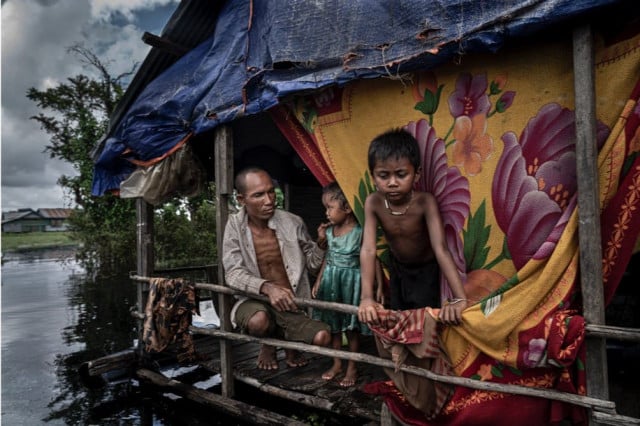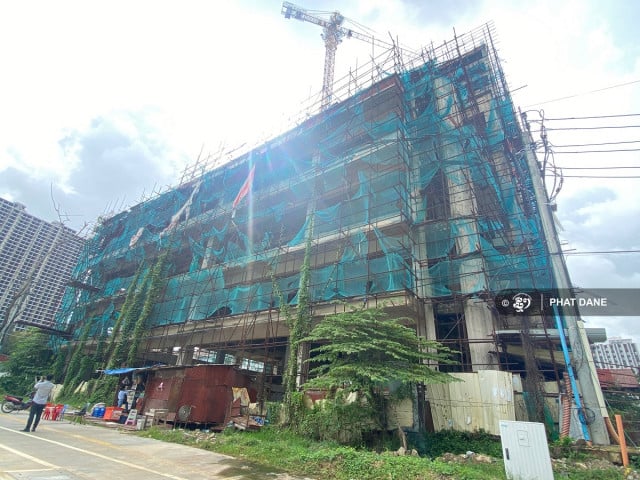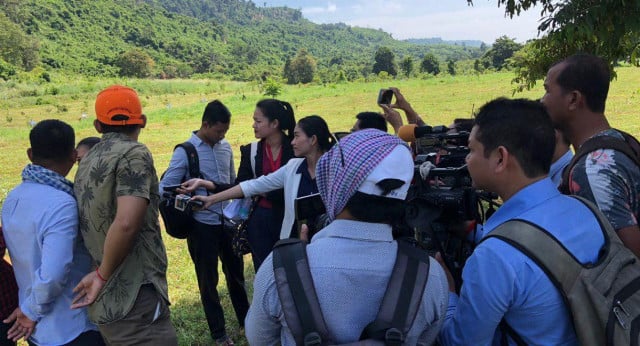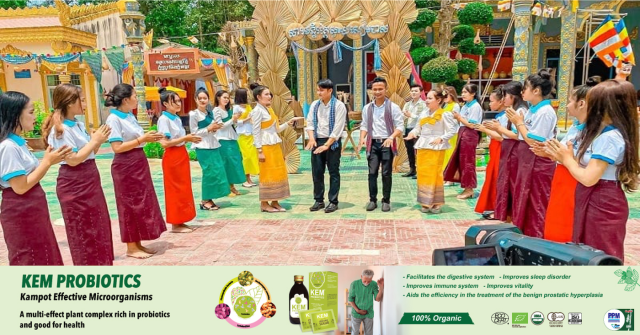Zalmaï – a Photographer Goes about Putting Communities of the Tonle Sap Lake in the Limelight

- Phoung Vantha
- December 13, 2020 9:26 AM
Through a series of photos, he hopes to help give them a voice and draw attention to their situation
PHNOM PENH--Most photo exhibitions are held downtown at cafes, art galleries and other locations that people in general enjoy. But for poor people or people who live in the countryside, it is hard to ever see those exhibitions.
This is why the photo exhibition "Between the Lake and the Stars" will take place at the floating health clinic on the Tonle Sap lake on Dec. 15 so that the fishermen’s families and other poor people living in remote areas of the lake can see them, said Zalmaï, the photographer who took the photos. Especially since the photos feature these communities, he said.
"When some people [in those families] asked me why I was taking pictures, I tried to explain my approach to them and I promised to show them the pictures,” he said in interview. “Finally, with the support of The Lake Clinic (TLC), I can keep my promise and show these pictures of them [taken] for them.

“This is a very special project for the people about the people, and I am really interested to see what is the reaction of the people on the lake,” he said. “[W]hat they are going to say…will be the message of this work.”
Born in Afghanistan, Zalmaï left his country for Switzerland when it was taken over by the Soviet Union in 1980. After studying photography at specialized schools in Switzerland, he became a freelance photographer, going from Indonesia to Egypt, Cuba to the Central African Republic and the United States, also covering the conflict in Afghanistan.
Winner of several photography awards, Zalmaï has had his work published in magazines and newspapers such as the New York Times Magazine, Time, Harper's Magazine, Newsweek and La Republica.
Zalmaï has also worked for NGOs and organizations such as Human Rights Watch, the International Committee of the Red Cross and the United Nations High Commissioner for Refugees.
Over the years, he came to Cambodia several times to attend the Angkor Photo Festival in Siem Reap City. But after the festival that ended in December 2019, he was not able to return home due to the COVID-19 outbreak. So he started working as a volunteer photographer for The lake Clinic.
This clinic provides free healthcare to children and adults of the floating communities on the Tonle Sap lake. "I have a friend who introduced me to The Lake Clinic,” Zalmaï said. “I started traveling with them on the lake...to the most remote places of the lake.
“There is no hospital, no clinic for these distant populations who suffer from malnutrition, diseases linked to the pollution of the lake, drought, depression and the economic consequences of the coronavirus, which silently strikes its inhabitants," he said.
Focused on the Tonle Sap floating villages, this series of photos captures the villagers’ concerns, difficulties and ongoing struggles, Zalmaï said. "During my stay at the lake, I met a lot of people who opened their hearts, doors, their pain, their joy, which allowed me to capture intimate moments of their lives," he said.
Through this project, Zalmaï also intended to provide a broader perspective and visibility to people who rarely have the opportunity to be seen, to show the lives of people and their communities, and what is happening in Cambodia’s rural waterfront environments. And in the process, to document the consequences of global warming in the area, he said.
Zalmaï hopes the population being celebrated through this collection of photographs will be empowered by these images of their lives.

He also hopes the photos will give them a voice and a sense of pride by providing them with an opportunity to express their points of view as they reflect on and identify the problems they face as individuals and as a community, Zalmaï said.
Interviews with people from those communities will be recorded during the exhibition at The Lake Clinic so that their stories and thoughts can be shared with people in the country, he said.
After the exhibition, which will end Dec. 20, Zalmaï hopes to exhibit the photos at a location accessible to the general public.
"[This series of photos] also seeks to create a line of communication to the outside world so [others can] better understand the needs and concerns of Cambodia’s lake communities,” Zalmaï added.
















